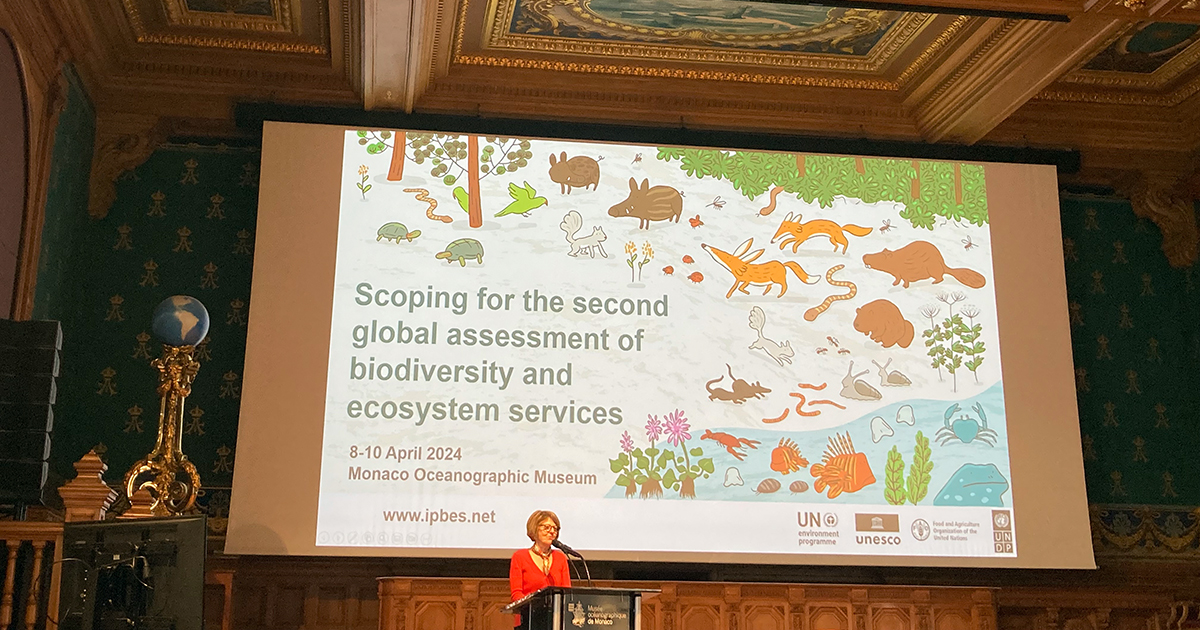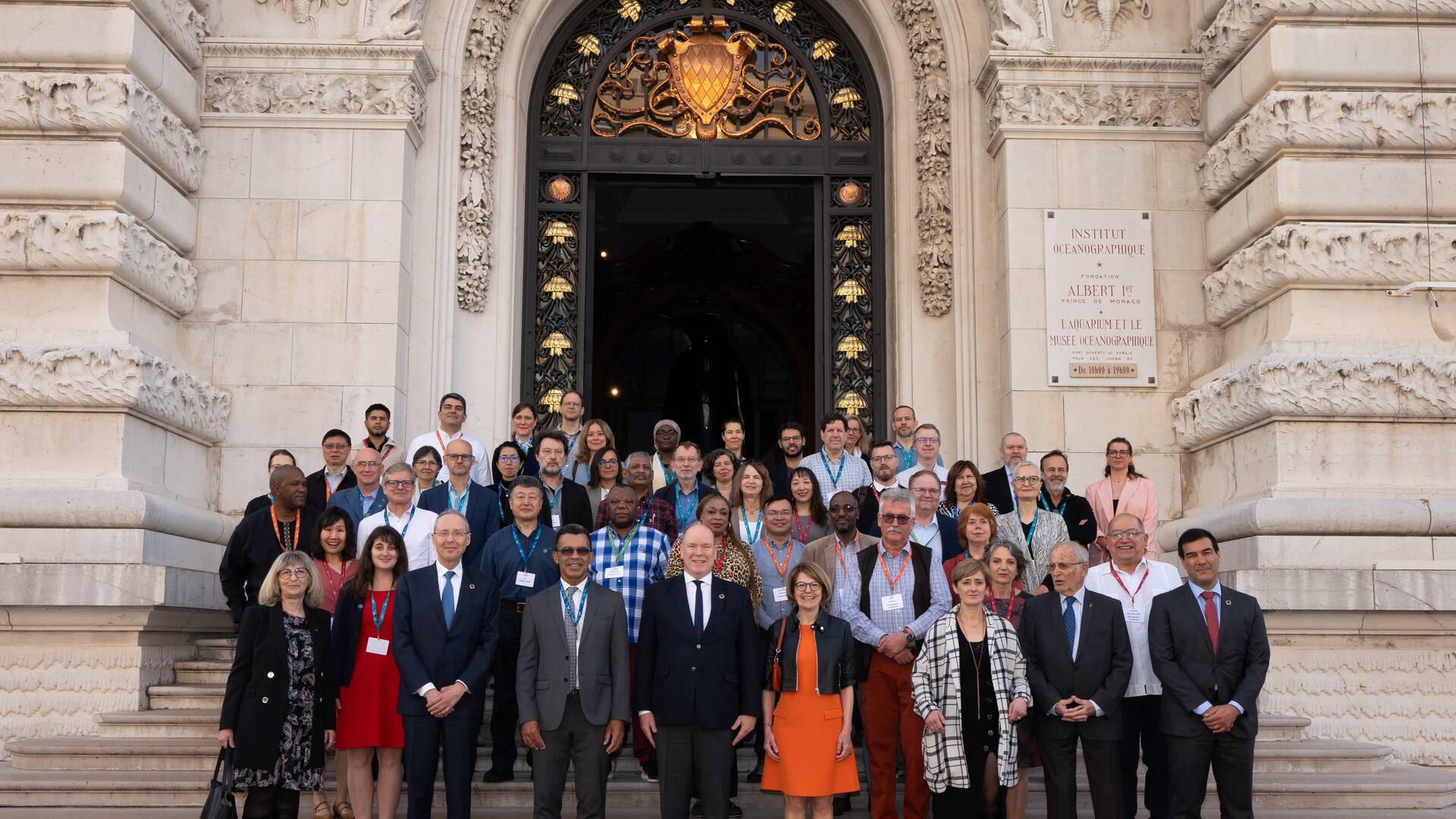Professor Helen Roy of UKCEH and University of Exeter is a scoping expert for the second IPBES global assessment of biodiversity and ecosystem services. The scoping process got underway in April 2024...
The Global assessment report on biodiversity and ecosystem services of the Intergovernmental Science-Policy Platform on Biodiversity and Ecosystem Services (IPBES, 2019) is a critical evaluation of knowledge on the status and trends of the natural world, the causes of the observed trends and options for action to revert the negative trends observed. Experts from all regions of the world, spanning multiple disciplines and encompassing diverse world views, values and knowledge systems, collaborated to deliver the assessment report comprising chapters and a summary for policymakers.
At the seventh session of the IPBES Plenary in 2019 members of IPBES approved the summary and accepted the chapters. The headline messages of the first IPBES Global Assessment are stark:
Nature is declining globally at rates unprecedented in human history — and the rate of species extinctions is accelerating, with grave impacts on people around the world.
For me, the first IPBES Global Assessment was inspiring. The first author meeting of the IPBES Thematic Assessment of Invasive Alien Species and their Control was held shortly after the launch of the IPBES Global Assessment in 2019 and I was delighted to be selected as a co-chair. Invasive alien species were recognised as one of the five major direct drivers of biodiversity loss in the Global Assessment. It was an honour to work alongside the other two co-chairs, the amazing team of experts, an incredible Technical Support Unit and the IPBES community to deliver the IPBES Thematic Assessment Report on Invasive Alien Species and their Control.
The IPBES Global Assessment provided us with many rich insights and the key messages of the IPBES Thematic Assessment Report on Invasive Alien Species open by echoing the IPBES Global Assessment:
Alien species are being introduced by human activities to all regions and biomes of the world at unprecedented rates. Some become invasive, causing negative and in some cases irreversible impacts on nature, including loss of uniqueness of biological communities, contributing to the unparalleled degree of deterioration of the biosphere upon which humanity depends.
It has been an immense privilege to contribute as an expert to the work of IPBES through the Assessment Report on Invasive Alien Species (and previously the Regional Assessment Report on Biodiversity and Ecosystem Services for Europe and Central Asia). Therefore, I was delighted to be nominated and subsequently invited to become a scoping expert for the second IPBES global assessment of biodiversity and ecosystem services.
The first Global Assessment contributed to the process that led to the adoption of the Kunming-Montreal Global Biodiversity Framework (GBF) during the 15th Conference of Parties to the UN Convention on Biological Diversity. The GBF outlines ambitious biodiversity targets to be achieved by 2030 and beyond. The targets provide a roadmap for “bending the curve” of biodiversity loss. IPBES assessments provide “critical evaluation of the state of knowledge by independent experts interacting with government representatives and other stakeholders in a stepwise process to ensure legitimacy, relevance and credibility”.
Critical evaluation
It is incredibly exciting to be anticipating the second Global Assessment which will be timely for many reasons. Not least the second Global Assessment will provide critical evaluation of the evidence for assessing progress towards some of the 23 targets outlined in the GBF to be achieved by in 2030 including 30 per cent conservation of land, sea and inland waters, 30 per cent restoration of degraded ecosystems and halving the introduction of invasive alien species.
Over the last three days (8-10 April) I have had the honour of working at the Monaco Oceanographic Museum with other scoping experts, the IPBES Management Committee and IPBES Secretariat to consider the scope of this important and timely report. As we immersed deeply in discussions on potential content and threads for the forthcoming assessment, it was wonderful and encouraging to hear in the background the excitement and awe of the visitors to this museum. The connections amongst people and nature are not only evident in the displays but also the reactions of the visitors as they marvel at the incredible creatures before them.

It was inspiring to hear the thoughtful contributions from the diverse group of experts gathered in support of the scoping process. Many of the experts had not met one another but our common purpose aligning with the IPBES mission (to strengthen knowledge foundations for better policy through science, for the conservation and sustainable use of biodiversity, long-term human well-being and sustainable development) ensured constructive and productive discussions.
I am excited to follow the next steps leading towards the IPBES Second Global Assessment. It will be wonderful to reflect on the outcomes of these few days, working on the initial stages of scoping report, when the IPBES Second Global Assessment is considered by IPBES members in 2028. Meanwhile I would like to express my gratitude to the IPBES Secretariat and Management Committee for inviting me to be one of the scoping experts and to everyone involved for their incredible spirit of collaboration and commitment to this important process.

I am extremely appreciative of Department for Environment Food and Rural Affairs for supporting my nomination as a scoping expert and to the UK Centre for Ecology & Hydrology (National and public good programme delivering National Capability, grant number NE/R016062/1) and the University of Exeter for enabling me to participate and for encouraging me to do so.

